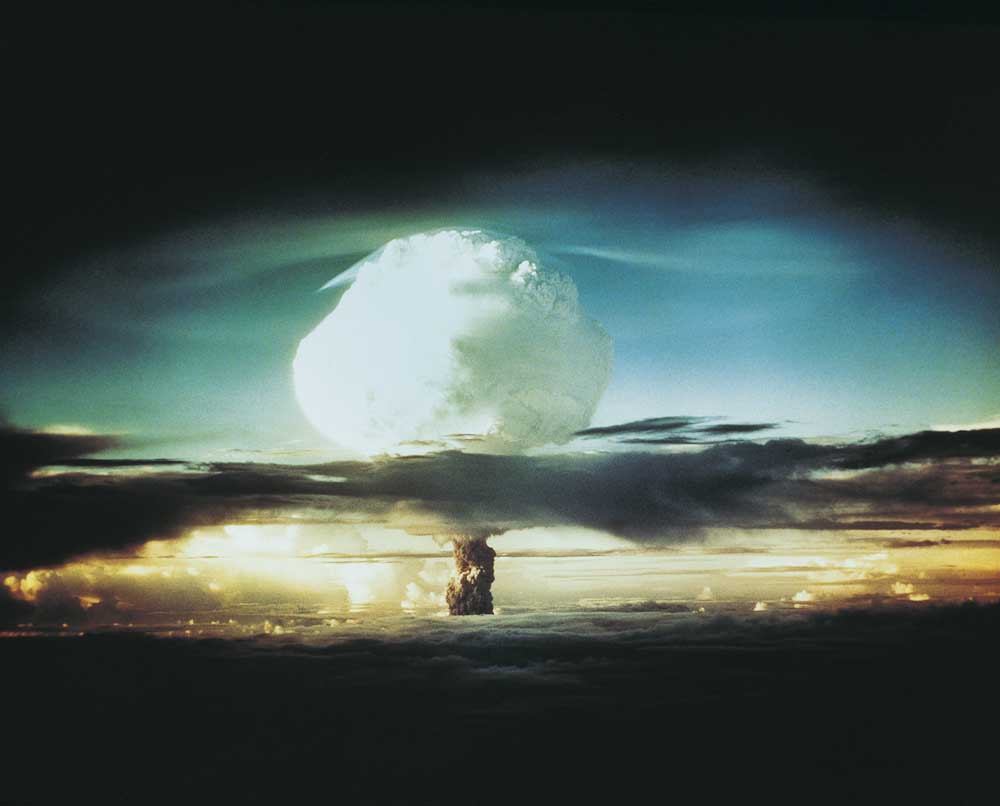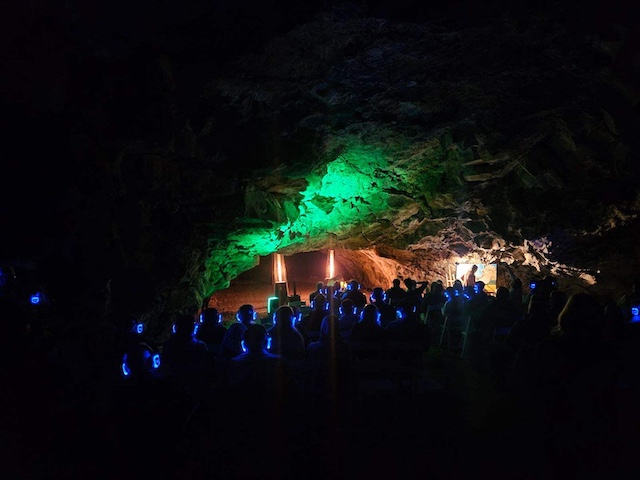Globe wiped out? Tips from the TV vault
Published 12:00 am Tuesday, June 24, 2014

- ThinkstockWhether from a nuclear apocalypse, a virus or some other cause, the lesson from TV is clear: When most of the life on earth ends, the survivors still have a whole lot to worry about.
You know the feeling. You emerge from a nap in your wine cellar or from a month in a submarine to find that during your absence, civilization has been destroyed, and only you, and perhaps a few other people, are left alive. You’re panicky. Grief-stricken. Bummed. Full of impotent rage. Perhaps even a little gleeful.
You’re familiar with this pileup of emotions, because even though you have never lived through the end of the world, you’ve seen it often enough on television. Now you’re seeing it again. On Sunday night, TNT presented the premiere of “The Last Ship,” a series from Michael Bay and others about a Navy destroyer crew that realizes that most of the world’s population has died while the vessel has been under radio silence during a four-month research mission in the Arctic.
Let’s hope they have a substantial television archive onboard, because they can learn a lot about how to deal with this situation from past series. Here are lessons that four post-apocalyptic shows of yore offer those on “The Last Ship” as they start their journey into the new, largely empty world:
The show: “The Last Train”
The lesson: Beware of dogs
Television tends not to be very creative when it brings an end to the world; generally, the culprit is either a virus or a nuclear war. So kudos to “The Last Train.” (Titles still available to future scriptwriters, by the way: “The Last Minivan” and “The Last Pedicab.”) This six-episode British series from 1999 killed us off with an asteroid.
“The Last Train” was also on the cutting edge when it came to accounting for the existence of survivors. The lucky few are passengers in a rail car that is buried in a tunnel by the blast. One of them happens to be carrying a canister of something that cryogenically freezes everyone in the car.
Upon waking, the groggy travelers don’t realize that decades have passed. When they hear barking, some think rescue dogs are on the way and rush toward them. Turns out they’re not rescue dogs; they’re just hungry dogs.
A rather gruesome scene follows. The people on “The Last Ship” should take note, because early in the premiere, as the destroyer is departing on its mission, it takes some sort of search dog aboard. “He’s a mean operator,” his handler tells a sailor. Uh-oh.
The show: “Survivors”
The lesson: Beware of rats
This British series ran for three seasons beginning in 1975 and was created by Terry Nation, whose long list of writing credits includes “Doctor Who” and “The Avengers.” Britain quickly degenerates into preindustrial ugliness when a virus kills most of humanity. (This virus appears to recur every 33 years; the series was remade in 2008.)
In a Season 2 episode, a few survivors venture into London, where the stench is so dreadful that they mask it by smoking cigarettes. As they prepare to exit their car, one pulls out some guns.
“What are they for?” another asks.
“Rats,” he replies. “The noise helps to keep them off.”
Guess what the scientists aboard “The Last Ship” bring along? Rodents. They look like mice, but still: Uh-oh.
The show: “Jericho”
The lesson: Be sure
The destruction of the world is a discombobulating event, and in its immediate aftermath, you’re going to need to make sure you don’t take anything for granted. The first thing not to take for granted is that world destruction has indeed occurred.
That is something the mayor of Jericho, Kan., is quick to point out in the first episode of a much-loved but short-lived series that CBS introduced in September 2006. On an otherwise ordinary day in the Midwest, residents see a mushroom cloud in the distance and begin to panic, since the president and Congress have lately been whining about a rise in “global violence.” But Mayor Johnston Green (Gerald McRaney) cautions everyone not to get carried away.
“Now, look,” he says about 12 minutes into the pilot, “this could have been a test, could have been an accident. There’s military bases near Denver. One explosion does not make an attack.”
Of course, the mayor should also have known that one explosion does not generally make a post-apocalyptic network series; it soon becomes apparent that cities all over the United States have been nuked. But the point is, “The Last Ship” crew should make sure that global extinction really is underway. Going all end-of-days when the problem turns out merely to be a global case of sniffles would be embarrassing.
That first “Jericho” episode offered another lesson in the importance of being sure. The sheriff and a deputy go out in search of a school bus that has not returned from a field trip. And they do find a crashed bus. But they don’t make sure it’s a school bus before boarding. Turns out it’s a prison bus, and the inmates on it are now free and armed. Uh-oh.
The show: “The Twilight Zone”
The lesson: Always have a spare
A spare what? A spare of whatever it is that is most important to you or makes your life worth living. Because once the world is destroyed, the service economy is going to be shot. Try getting a repairman, a replacement part or a response from a consumer help line when everyone is dead.
A man named Henry Bemis, played by Burgess Meredith, learns this the hard way in “Time Enough at Last,” a fondly remembered episode of “The Twilight Zone” from 1959. He’s a bookish bank clerk who spends his breaks reading in the vault. That’s where he is when a nuclear attack occurs.
He’s briefly excited because now he’ll be able to read all day, every day. Then he breaks his glasses. If he’d had a spare pair, not a problem. But he apparently doesn’t. Uh-oh.






